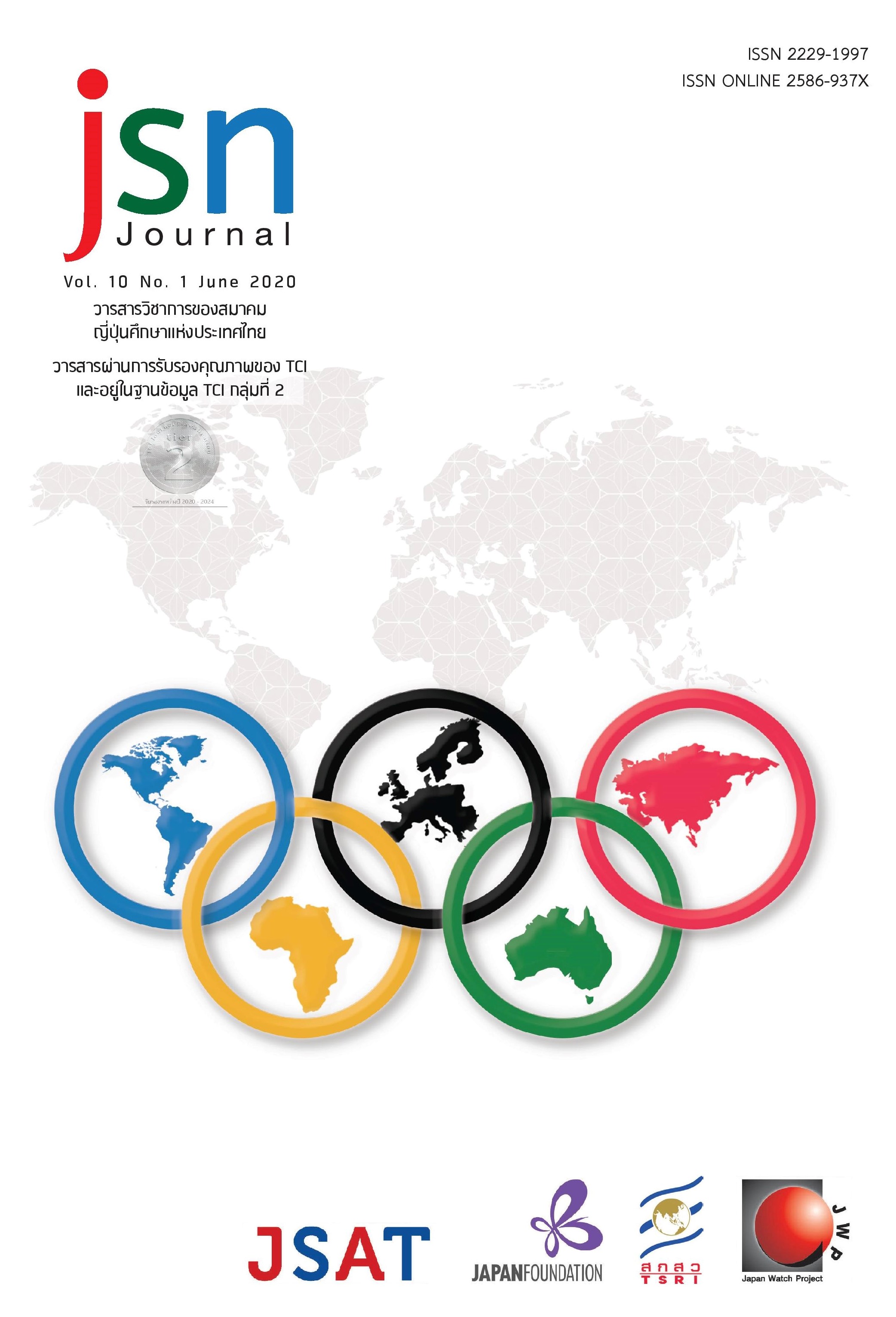An Analysis of the Problems of Japanese Language Use during an Internship Program A Case Study of Students Majoring in the Japanese Language
Main Article Content
Abstract
This study aims to analyze the problems concerning Japanese language use that occurred during an internship program. The target group was 26 Thai students majoring in the Japanese language. Data were collected using 2 methods: questionnaires in order to obtain a general picture of the problems concerning Japanese language usage and an interview session to probe the details of the situations in which those problems occurred. The results showed that the target group mostly had problems with “lexicon of technical terms” (100%), “choice of words appropriate for the situation” (92.31%), and “dialect listening comprehension” (84.62%). Furthermore, the data from the interview session revealed that while the target group was capable of general communication by applying what they had learnt in the classroom, they found it difficult to use the Japanese language efficiently when engaged in complex working situations due to the lack of business-related contents that were not sufficiently covered in the classroom.
Article Details
ข้อความและข้อคิดเห็นต่างๆ ในบทความเป็นของผู้เขียนบทความนั้นๆ ไม่ใช่ความเห็นของกองบรรณาธิการหรือของวารสาร jsn Journal
References
ธิติสรณ์ แสงอุไร. (2012). การประเมินความสามารถด้านการฟังและการพูดภาษาญี่ปุ่นของตนเองของบัณฑิตที่ทำงานในบริษัทญี่ปุ่น.『国際交流基金バンコク日本文化センター日本語教育紀要』9, 59-68.
ธิติสรณ์ แสงอุไร. (2556). ความพึงพอใจของบัณฑิตต่อการเรียนการสอนภาษาญี่ปุ่นด้านการฟังและการพูดกับความสอดคล้องกับความต้องการของบริษัทญี่ปุ่นในประเทศไทย. วิทยานิพนธ์หลักสูตรปริญญาอักษรศาสตรมหาบัณฑิต.
สุณีย์รัตน์ เนียรเจริญสุข. (2547). ความพึงพอใจของผู้จ้างงานบัณฑิตภาควิชาภาษาญี่ปุ่น มหาวิทยาลัยธรรมศาสตร์. วารสารศิลปศาสตร์ มหาวิทยาลัยธรรมศาสตร์, 4(1), 85-98.
ศิริวรรณ มุนินทรวงศ์. (2561). ปัญหาการฝึกงานและทักษะในการทำงานของนักศึกษาสาขาวิชาภาษาญี่ปุ่น มหาวิทยาลัยธรรมศาสตร์. วารสารเครือข่ายญี่ปุ่นศึกษา, 8(3) ฉบับพิเศษ, 206-218.
Nareenoot Damrongchai. (2013). Japanese Speaking Personnel Proficiency Deficiencies: A Case Study of Japanese Education in Thailand. Journal of Language Teaching and Research, 4(2), 348-356.
片桐準二・椿弘美 (2002).「タイ国の大学における日本語主専攻開設前後の卒業生動向―シラパコーン大学日本語講座卒業生2001年追跡調査の結果と考察―」『国際交流基金バンコク日本語センター紀要』5, 53-68.
タナサーンセーニー美香・當山純・高坂千夏子・中井雅也・深澤伸子 (2005) .「ビジネスで使う日本語を考える―企業と教育現場の視点から―」『国際交流基金バンコク日本文化センター日本語教育紀要』2, 207-222.
前野文康、勝田千絵、Nida Larpsrisawad (2013).「在タイ日系企業が求める日本語人材―アンケート調査より―」『国際交流基金バンコク日本文化センター日本語教育紀要』10, 67-76.
前野文康、勝田千絵、Nida Larpsrisawad (2015).「在タイ日系企業が求める日本語人材―インタビ ュー調査より―」『国際交流基金バンコク日本文化センター日本語教育紀要』12, 47-56.


